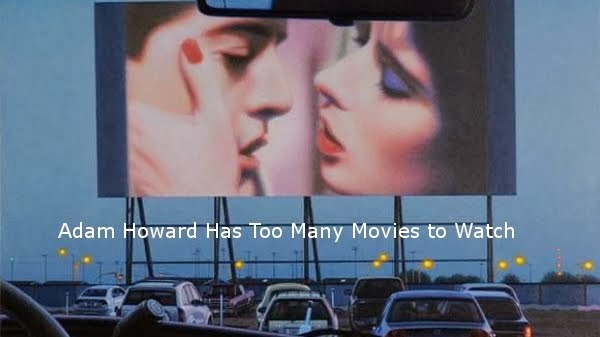 As I've said about a million times on this blog, I love scary movies. They're mostly bad, but when they're good they can be really great. Of course, there are moments in classic ones like Halloween that I always get a thrill out of, but every scare dissipates with time because you learn where they are coming from.
As I've said about a million times on this blog, I love scary movies. They're mostly bad, but when they're good they can be really great. Of course, there are moments in classic ones like Halloween that I always get a thrill out of, but every scare dissipates with time because you learn where they are coming from.And so I am always on the hunt for the next thing -- the next scary movie that truly terrifies me or leaves me uneasy. This has become a challenge for me as I've gotten older. I don't believe in monsters or ghosts, so while I can be very entertained by movies like It, I never get too scared by them because I can easily dismiss what I'm seeing as unreal.
Some recent so-called elevated horror movies like Hereditary, Us and Midsommar were thrilling and at times very creepy viewing experiences, but while the filmmaking skill and intellectual acumen of those movies have stuck with me, the tension I felt when I first saw them in theaters.
 This all leads me to the Japanese film Audition, which I have put off seeing for years because literally since I was in college I have been hearing about how unbearably horrifying the final sequences of the movie are. I've always avoided most of the horror movies that could be described as torture porn, mainly because I find that kind of stuff nauseating. But I knew Audition was supposed to be something different and much better.
This all leads me to the Japanese film Audition, which I have put off seeing for years because literally since I was in college I have been hearing about how unbearably horrifying the final sequences of the movie are. I've always avoided most of the horror movies that could be described as torture porn, mainly because I find that kind of stuff nauseating. But I knew Audition was supposed to be something different and much better.I went into it knowing it was a slow burn. And in fact, if you didn't know any better, you could watch it for at least a third of its running time without even knowing it's a horror film.
It's about a lonely widower who comes up an elaborate scheme to meet and marry a new woman. He finds one he really likes but she turns out to be crazy in ways that he couldn't possibly have imagined.
That is the simple set-up but this is no Fatal Attraction-style potboiler. The motivations of the woman are murkier. We know she is the victim of abuse but that doesn't necessarily justify her actions. Anyway, it's a very effective, stylish movie with a last act that is remarkably vivid and gruesome. I was very entertained by it but pretty much not frightened by it (although one iconic shot of a motionless sack suddenly slumps over did make me jump).
It's a great movie -- even a great scary movie. But I think my senses have been dulled a bit. Jumps scares feel cheap and even most films that rely on creeping dread sort of hit the notes you expect them to.
Oddly enough, it's the scenes that depict real world chaos that I find scare more more than anything supernatural. For instance, the early scenes of World War Z, where there is absolute mayhem and panic as some sort of airborne virus starts to turn people into feral zombies. It's not the zombies that scare me so much as the looting, the traffic accidents and the unruly hordes that can trample you.
Even more frightening to me was the chaos at the end of Joker, a movie I found more frightening than a lot of modern horror movies, because it felt more grounded and even dare I say plausible. In the era we're living in where white men especially are taking out their aggrieved anger out on other people -- let's just say unsettling to me.
That movie suggested an interesting new direction for horror to continue to go in should the genre feel so inclined -- Green Room -- comes to mind, where the fear is more of the hate and horror that lives in many of our backyards today. I think we'll find that the world currently is plenty scary enough without ghouls and goblins.




















